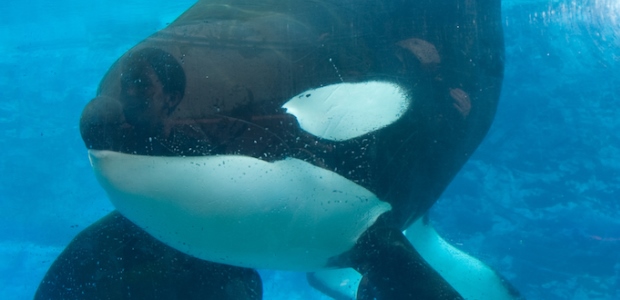
SeaWorld and Former CEO Settle Fraud Charges
"This case underscores the need for a company to provide investors with timely and accurate information that has an adverse impact on its business. SeaWorld described its reputation as one of its 'most important assets,' but it failed to evaluate and disclose the adverse impact 'Blackfish' had on its business in a timely manner," said Steven Peikin, co-director of the SEC Enforcement Division.
The federal Securities and Exchange Commission announced Sept. 18 that SeaWorld Entertainment Inc. and its former CEO have agreed to pay more than $5 million to settle fraud charges for misleading investors about the impact the documentary film "Blackfish" had on the company's reputation and business. SeaWorld's former vice president of communications also agreed to settle a fraud charge for his role in misleading SeaWorld's investors, the SEC reported.
"Blackfish" criticized SeaWorld's treatment of its performing killer whales. The SEC's complaint alleged that from approximately December 2013 through August 2014, SeaWorld and former CEO James Atchison made untrue and misleading statements or omissions in SEC filings, earnings releases, and calls, and other statements to the press regarding the movie's impact on the company's reputation and business. According to the complaint, on Aug. 13, 2014, when SeaWorld for the first time acknowledged that its declining attendance was partially caused by negative publicity, SeaWorld's stock price fell, causing significant losses to shareholders.
"This case underscores the need for a company to provide investors with timely and accurate information that has an adverse impact on its business. SeaWorld described its reputation as one of its 'most important assets,' but it failed to evaluate and disclose the adverse impact 'Blackfish' had on its business in a timely manner," said Steven Peikin, co-director of the SEC Enforcement Division.
SeaWorld and Atchison have agreed to settle the SEC's charges without admitting or denying the allegations, with SeaWorld paying a $4 million penalty and Atchison paying more than $1 million in penalty and disgorgement. SeaWorld's former vice president of communications, Frederick D. Jacobs, agreed to settle a fraud charge and to pay disgorgement and prejudgment interest of approximately $100,000. He was not assessed a penalty, reflecting his substantial assistance in the SEC's investigation, according to the SEC's announcement, which said all of the settlements are subject to court approval.
Killer whale shows at SeaWorld were the focus of a major OSHA enforcement case after a whale trainer for the company named Dawn Brancheau was killed by a killer whale in February 2010 -- the animal, named Tilikum, had pulled her into the pool during a performance and killed her. OSHA filed two willful citations against SeaWorld after investigating her death. An OSHRC administrative law judge affirmed the citations in June 2012 but downgraded them from willful to serious; SeaWorld appealed but lost in 2014 before the U.S. Court of Appeals for the D.C. Circuit, which rejected SeaWorld of Florida LLC's challenge to a general duty clause violation. The majority opinion, written by Judge Judith W. Rogers, found "there was substantial record evidence that SeaWorld recognized its precautions were inadequate to prevent serious bodily harm or even death to its trainers and that the residual hazard was preventable."
SeaWorld stopped allowing trainers to be in the water with killer whales after Brancheau's death and separated them with barriers or distance, which were the abatement measures proposed by OSHA in the case. But SeaWorld argued the agency overreached by using the general duty clause and that barriers and distance create additional hazards for the trainers. The case was SeaWorld of Florida, LLC v. Thomas Perez, No. 12-1375. Chief Judge Merrick Garland, later a U.S. Supreme Court nominee of President Obama, was one of the three judges on the case.